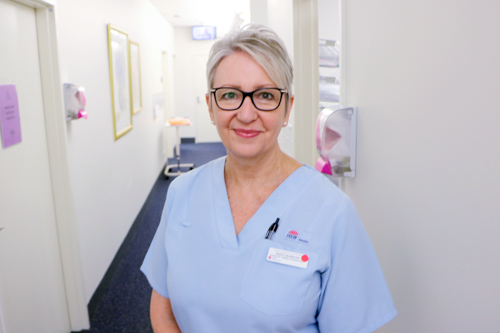A woman’s worth
There aren’t many women with the fortitude to embark on a PhD after four children at the age of 52, but the Royal Hospital for Women’s Ellen Barlow is one of them.
Ellen – now Dr Barlow – had the good fortune to work with Professor Neville Hacker, the retired pioneer in gynaecological cancer. Her early work with him as a part-time research nurse led to her undertaking research exploring sexuality and body image after surgery for vulva cancer. From there it seemed a natural progression to undertake a PhD, focusing on the clinical management of vulva cancer.
Vulva cancer is a relatively uncommon cancer which affects approximately 350 women each year in Australia, but it can have a significant impact on a woman’s sexuality and body image.
“Women who have had breast cancer talk about it quite openly, while women who have had vulva cancer can feel quite isolated,” Dr Barlow says. “They often don’t feel comfortable talking about it.”
Dr Barlow says she hopes her research inspires younger nurses to embark on a career in health research.
If she has one piece of advice to give a nurse starting out in their career, what would it be?
“Take every opportunity to further your education, and always leave your options open – a whole range of opportunities may eventuate for you.”
Completing a PhD involved discipline. It meant getting up at 4.30am many mornings, and shutting herself away in her home study on the weekend while everyone else was out enjoying time with family and friends. She continued to work full time throughout most of her studies, only taking leave towards the end to complete her thesis.
Dr Barlow says two decades at the coalface have not dented her enthusiasm or compassion.
“There have been so many patients who have made a lasting impression on me, and whom I will never forget. The lonely older woman from the country, with no family support. The young woman, grappling with the realisation that she may never have a family, or the mother leaving children behind. Every patient has her own story, and every story affects all of us caring for them,” Dr Barlow said.
“There are many women whose lives have been saved at The Royal, and for whom cancer becomes a distant memory.” It’s deeply uplifting, she says, to see women complete a long course of chemotherapy or radiotherapy, or women who go on to have children after their treatment.
